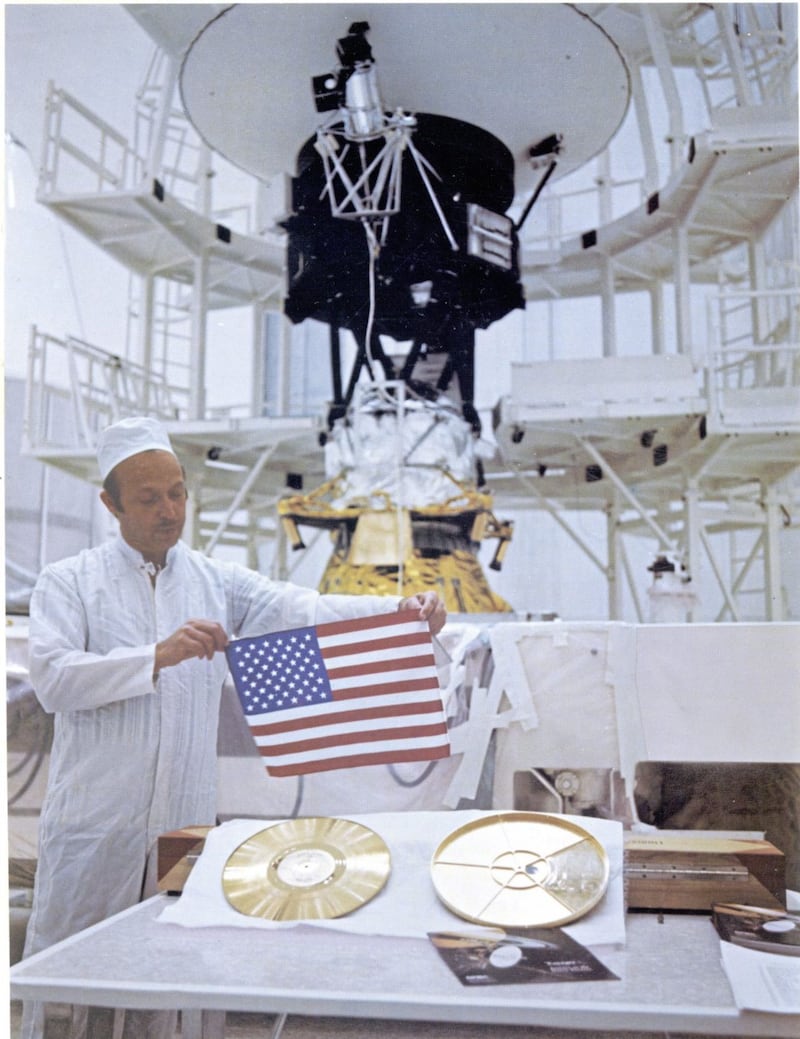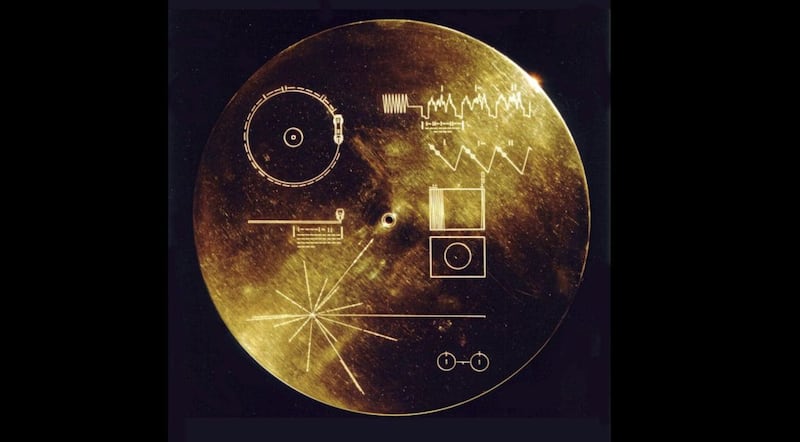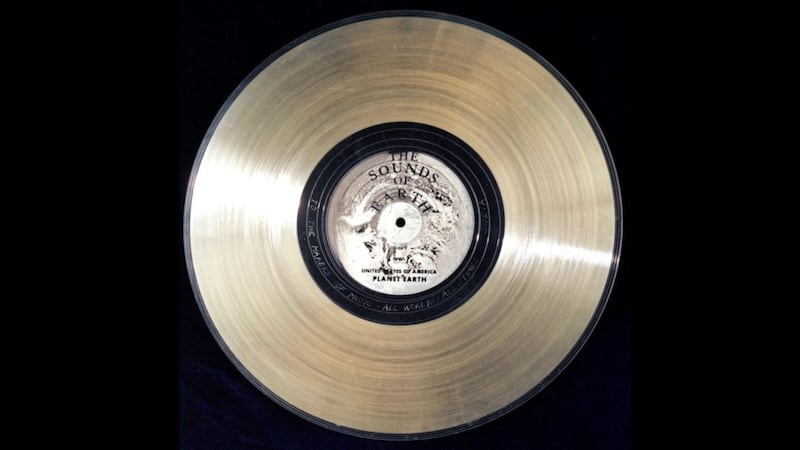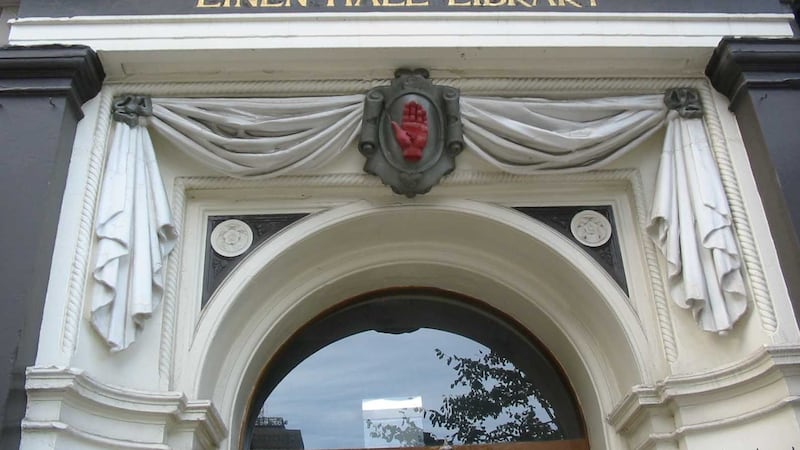RECORD collectors like to boast about the rarest discs in their collections, but there's one first pressing that no-one has at home – nor will it ever be stumbled upon while 'crate digging': only two copies of the The Voyager Golden Record were ever pressed, and both were shot into space by Nasa almost 44 years ago.
The Vinyl Frontier: The Story of Nasa's Interstellar Mixtape finds music-loving writer and space enthusiast Jonathan Scott delving into the fascinatingly unlikely yet utterly true tale of how Nasa commissioned a compilation LP for their Voyager space probes in the 1970s.
Launched in September and August 1977 respectively, Voyager 1 and 2's primary mission was the exploration of Jupiter and Saturn. However, it wasn't the Voyagers' only function: both craft had a circular, 12-inch diameter payload strapped to their hulls which was specifically designed to provide extra terrestrial life with a succinct audio-visual guide to who we are as a species.
Compiled by celebrity US astronomer Carl Sagan and a small team of trusted acolytes, including legendary American musicologist and archivist Alan Lomax, The Voyager Golden Record was a genre-hopping multi-media album pressed as a pair of solid gold discs, one for each Voyager craft, and packed into space-proof sleeves etched with instructions on how to play them.
Each contains the same eclectic 90-minute playlist of tunes including pieces by Bach, Mozart, Louis Armstrong and Chuck Berry alongside a selection of obscure world music, a 'sound essay' attempting to depict the evolution of life on Earth, a message of peace from US president Jimmy Carter, spoken greetings in multiple languages and more than 100 photographs and diagrams stored as data embedded into those golden grooves.
"I remember hearing about it on The Sky at Night and going, 'Wow, I wonder what they put on that?! It must be awesome,'" recalls Sussex-based Scott of how his curiosity about The Voyager Golden Record was first piqued while growing up as a space-obsessed child in the 1980s.
Sadly, for reasons the author delves into in hugely readable style in The Vinyl Frontier, the only way to actually hear the world's first ever 'interstellar mix tape' in the wake of its blast off would have involved building your own turntable-equipped spaceship: Nasa's odd musical side-project didn't actually receive a commercial release until 1992, and then only as a CD-ROM.

Happily, The Voyager Golden Record finally received a 'proper' release in 2017 to mark the 40th anniversary of its launch – on CD and deluxe gold-coloured vinyl, naturally – but until then, spaceheads like Scott simply had to pore over Voyager-centric books like Sagan and co's Murmurs of Earth for tracklisting tid-bits, most of which were guaranteed to leave the average pre-pubescent music fan decidedly non-plussed.
"I was a Chuck Berry fan ever since I saw Back To The Future in 1985, so I was pleased to see that he had made it on there – but when I found out it mainly had lots of classical music on it I was like, 'Uh, that's a bit boring'," confesses the author, who penned two pieces on the project for Record Collector magazine prior to writing The Vinyl Frontier.
"It didn't help that a lot of the music on there was also incredibly hard to get hold of, and when it finally came out on CD-ROM I didn't buy it, as I had no way of playing it. In fact, the first time I listened to more or less the entire Voyager Golden Record was around 2010, during the research for this book.
"By this stage, I was no longer disappointed with it, especially as I was discovering more about the history behind each track and why it made it aboard. It's a bit like listening to Jimi Hendrix at Monterrey – it's impossible to listen to that without thinking about the story behind that performance, that he was coming back to America [having wowed crowds and musicians in England] as a relative unknown and blowing people's minds.
"The Golden Record is similar. When I listen to it today, I think about the history of it being made – and I also think about where it is now."
The reality of this is kind of mind-boggling: having visiting Uranus and Neptune, the Voyagers have most recently been exploring interstellar space at the outermost edges of the Sun as the furthest man-made objects from the Earth – some 14,000,000,000 miles away and counting, in fact.

"I'd written two quite short pieces for Record Collector when I had the realisation that these records were going to outlast our planet," recalls Scott of why he decided to write his book.
"I realised, 'This can't just be a page!' I really wanted to tell people more about it because any time I'd mention The Voyager Golden Record to someone, the reaction was always the same: they thought I must be confused or just making it up.
"I just thought 'I need to write a book about this – because no-one else is doing it.'"
In The Vinyl Frontier, Scott interviews many of the surviving members of the team who put this rarest of records together in an attempt to document how and why the project came together.
"I wanted to interview as many of the key people as I could and I managed to speak to all of them except Carl, who died in 1996, and his ex-wife Linda Salzman who doesn't give interviews," reveals Scott, whose next book will be on the origins of recorded sound.
"However, even the more obscure people involved in the story fascinated me just as much: I love the idea that these people who had even the most transient brush with involvement in the project ended up on a thing that's going to last forever.

"They were all fascinating in different ways. They all expressed a sense of delight that they had been involved and they all talked about the project in a similar way, a bit like proud parents – they also bickered among themselves like proud parents sometimes do, because they remembered things slightly differently from each other."
He adds: "What drew me into this story was the musical playlist, but actually the more I got stuck into it, it was things like the greetings in different languages, the photographs and the sound essay which fascinated me even more, just because of the strange organic way in which it all came about."
However, there's no doubt that its musical element is a hugely alluring part of The Voyager Golden Record's story, especially given its the potential to have been a culturally insensitive 1970s bad taste disaster.
"The people who made it set out to make a record for everyone," notes Scott.
"When I'm giving talks on the book I like to ask everyone to pick one song that they would send up and then we make a Spotify playlist of everyone's suggestions – and we've made some really good ones.
"It's just a fascinating concept: one hour-and-a-half playlist for all mankind. And then you start thinking – 'Well, what would I send?'"
:: The Vinyl Frontier with Jonathan Scott, in conversation with BBC Radio Ulster's Steven Rainey. Friday February 19, 7pm. This is a free event, find out more at NIsciencefestival.com. Visit Jonathan online and check out his VGR playlist at thejonoscott.com





